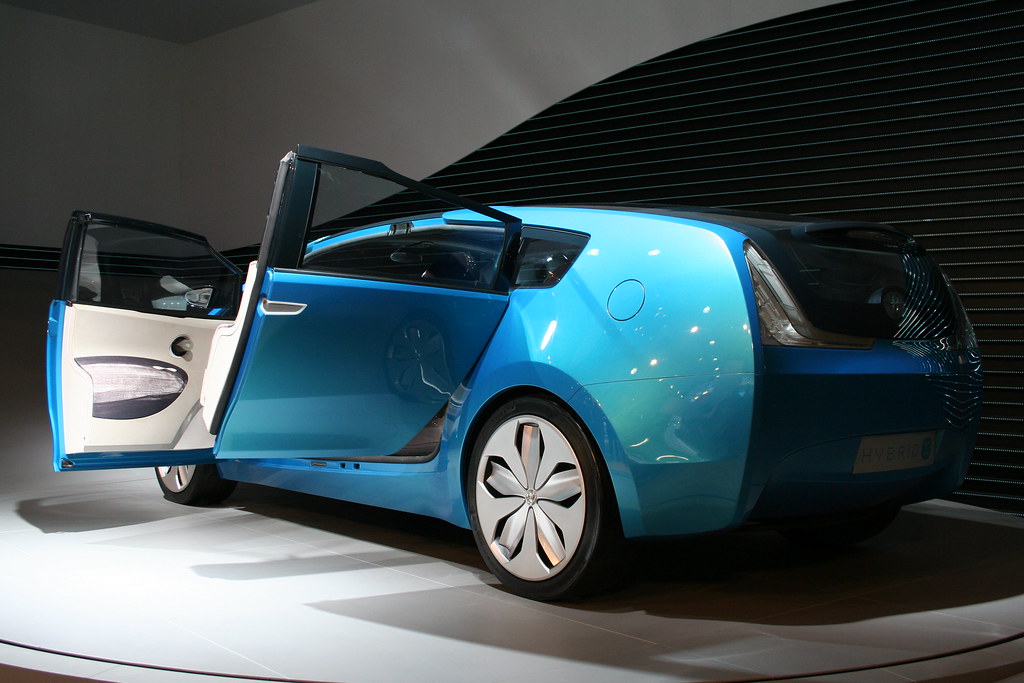
In recent debates about the transportation sector’s future and the urgent need to cut carbon emissions, Toyota’s traditional approach has generated significant discussion and differing opinions. Former CEO Akio Toyoda highlighted potential constraints of fully electric vehicles (BEVs), arguing they may only capture about 30% of the market share, opening the door to a rich conversation about the most effective routes for sustainable automotive evolution.

1. **The Multi-Pathway Approach**: At the core of Toyoda’s philosophy is what he describes as a “multi-pathway approach” to reducing CO2 emissions. Unlike the singular focus on electric vehicles, this approach embraces a combination of battery-electric vehicles, hybrids, internal combustion engines, and hydrogen-powered cars. This strategy is designed to provide flexibility and align with consumer preferences rather than regulatory mandates.

Market dynamics play a crucial role in the ongoing debate, particularly as some regions see electric vehicles already exceeding the 30% market share Toyoda anticipates. Countries like Norway and Sweden have achieved impressive electric vehicle adoption, driven by government initiatives aimed at zero-emission goals, which raises important questions about the global outlook for EVs and contrasts with Toyoda’s claims.

3. **Investment Trends in the Industry**: Despite Toyota’s more cautious approach, the automotive industry is witnessing a significant shift towards electric vehicles. Many competitors have committed to investing billions to transition their lineups to fully electric, aiming to capitalize on consumer demand for sustainability. Toyota’s relatively slower pace in this transition has led to criticisms and worries about its long-term viability in an increasingly green market.

4. **The Role of Hybrids**: Toyoda’s strong endorsement of hybrid technology is evident; he believes that hybrids can significantly contribute to emissions reduction. The Toyota Prius, a pioneer in hybrid technology, remains a symbol of Toyota’s legacy in eco-conscious driving. However, some environmental advocates argue that hybrid vehicles still rely on fossil fuels, calling into question their classification as a green solution.

Despite advances in fully electric vehicle development, Toyota is also heavily investing in hybrids and hydrogen technologies, as company leaders suggest the global market is not quite ready for an immediate transition due to factors like high costs and inadequate infrastructure. This cautious approach appears justified, especially in areas still lagging in electric vehicle uptake.

6. **Toyota’s Vision for the Future**: Although Toyota is committing to ramping up production of electric models—targeting 1.5 million EVs by 2026—it continues to hedge its bets by maintaining its hybrid and hydrogen strategies. This dual approach highlights the company’s belief in a diverse energy landscape, rather than a singular focus on battery-electric solutions.

7. **E-Fuels as a Complementary Technology**: Another interesting aspect of Toyota’s strategy is its exploration of e-fuels, which are produced using renewable energy sources. This could provide a potential bridge for existing combustion engine vehicles to reduce emissions without a complete overhaul of the automotive infrastructure, reflecting a practical approach to sustainability.

Consumer behavior significantly impacts this dialogue, as a split in preferences emerges among potential buyers. While many are inclined towards electric vehicles driven by environmental motivations, others hesitate due to costs and the lack of charging amenities, leading Toyota to advocate for a customer-led market approach rather than one dictated solely by regulations.

Infrastructure development is a crucial aspect of this discussion, as the absence of sufficient charging stations and grid support could hinder the electric vehicle transition. Toyota’s leadership has pointed out that certain markets are not prepared for a large-scale shift to electric cars, lending credence to their hybrid-centric business model.

10. **The Future of Automotive Technologies**: In a rapidly changing automotive landscape, it’s clear that both hybrid and electric technologies will play significant roles in achieving sustainability. The question then becomes how these technologies will coexist and what innovations will emerge to enhance their effectiveness in reducing emissions.

When it comes to emissions reduction, hybrids often outperform traditional internal combustion engines, presenting a more favorable profile. Vehicles like the Toyota Prius exemplify this trend with their efficient design and hybrid technology, showcasing significant enhancements in fuel economy and emissions, thus serving as a valuable transitional option while electric vehicle infrastructure is developed.

12. **Consumer Preferences in Different Regions**: Not all consumers are ready to embrace electric vehicles, particularly in regions where the infrastructure for charging is lacking. In these cases, hybrids serve a crucial role, providing a more familiar technology that mitigates emissions without the need for extensive charging networks. Toyota’s hybrid models cater to those who remain hesitant about switching entirely to electric.

The higher initial costs associated with electric vehicles can be a barrier for many consumers looking to make eco-friendly choices. In contrast, hybrids like the Prius generally have a lower price point, making them a more accessible option for budget-conscious individuals seeking to contribute to emissions reduction.

14. **Government Incentives and Regulations**: Different governments offer various incentives for both hybrid and electric vehicles. Understanding these incentives can help consumers make informed choices. For example, some regions may provide tax credits for hybrids, making them particularly attractive. Toyota’s well-established hybrid technology positions it to benefit from such regulations.

As the electric vehicle market expands, concerns about battery production and disposal intensify. Hybrids, which typically use smaller batteries, may offer a more sustainable interim solution until effective recycling processes for larger EV batteries are firmly established, with Toyota’s hybrid expertise paving the way for improved sustainability practices within the automotive sector.

16. **Driving Experience and Performance**: Many drivers appreciate the driving experience offered by hybrids, which often combines the benefits of electric and gasoline engines. This can result in a smoother ride and better acceleration in certain driving conditions. With vehicles like the Prius, consumers can enjoy efficient driving without sacrificing performance.
The future of the automotive industry promises ongoing innovations in both hybrid and electric technologies, with companies like Toyota well-positioned to utilize their extensive hybrid experience to create solutions that complement electric vehicles. This ensures consumers have a diverse array of options as the market evolves.

Even as the discussion regarding the most effective way to lower emissions continues, it’s evident that both hybrid and electric technologies bring unique advantages to the table. Toyota’s dedication to hybrid vehicles provides a realistic and practical solution during the transition to a more electric-driven future, ensuring a strategic approach that caters to varying consumer needs sustainably.
Related posts:
Total EV Adoption Is Not The Way Forward, Says Toyota Chairman
Why Toyota – the world’s largest automaker – isn’t all-in on electric vehicles
Toyota’s Troubling Electric Vehicle Track Record





.jpg)